There are some deaths that are shocking and make one sad. And there are others that have a shocking and sadness level that is so deep, it is hard to quantify. When I heard late last night that Peggy Lipton had died—at 72, of cancer—I was shocked and saddened in a personal and vulnerable way.
Peggy died peacefully, surrounded by her daughters, actress and screenwriter/producer Rashida and children’s book author Kidada, the Los Angeles Times’s startling but matter-of-fact obituary declared. It seems sadly cruel that she died the day before Mother’s Day, because not only was she a superb mother—she and I talked about her mothering over the years and I knew about her challenges—but she had recently become a grandmother.
Rashida had a baby in October. When I wrote her an email congratulating her she wrote back (I am copying the email): “thank u Shelia Its truly divine.” If she knew she had a relapse of the colon cancer she was diagnosed with in 2003 and which she conquered soon after, she was keeping it, appropriately quiet.
Read More: Why We Care so Much About Celebrity Deaths
The Last Interview
But we had spoken months earlier—for this story I had written for NextTribe—and I had taken note of her vulnerability, something so many of us share, and her insistence on vanquishing fears and anxieties, the probable depths and causes of which I did not know.
Like so many women of her generation—so many women, period—she didn’t run from challenges.
She spoke of how weathering a recent ungodly heat wave had weakened and frightened her and how “I reminded myself during these last few days that I have to get over negative thinking.” She went on: “When I start getting negative, I realize I need to put grace and joy and self-appreciation in my life.” It had struck me that one of the first things she said when we got on the phone for our long talk was that she had to pay attention to the writing of her will. But it didn’t occur to me that there was a quietly pressing reason for that.
She was a woman of determined positivity; she was taking tech classes and CPR, joining a book club and continuing to reap the “compassion and empathy” available through the meditation she had practiced for decades. But she went out of her way to say that anxiety—age-related and otherwise—was real. She pressed that point in our conversation.
That refusal to sugar coat life or to choose easy paths was part of what made Peggy, for all her stunning beauty and seemingly blessed existence, so admirable. She had a childhood in a wealthy New York suburb; a modeling and acting career (who can forget her Julie on Mod Squad?) in the white-hot center of the glamorous new counterculture hipness of late 1960s Hollywood, marriage for many years to the iconic musical genius Quincy Jones. Like so many women of her generation—so many women, period—she didn’t run from challenges, and she embraced and ruminatively bore down on the complexity of life.
Breathing Out
I met Peggy on September 11, 2002; I remember the date because it was the first anniversary after 9/11, and the remembrance of that tragedy colored our conversation and made it more soulful somehow. I had lunch with her and her publicist because I had expressed interest in being her co-writer on her memoir (eventually written and published as Breathing Out) and during the lunch she had talked of the challenges and satisfaction of raising two biracial daughters who were different in temperament from one another and, in a sense, different in cultural identification: Rashida, at the time, feeling more biracial, Kidada feeling more black.
Mothering her daughters well was a huge mission to her and the racism in America did not make it easy.
Peggy eventually chose another writer for her memoir, but several years later I contacted her to try to do a story on her daughters. The effort took a year, but Peggy was in favor of it. Because of the young women’s remarkable candor, it showed the complexity of being biracial in America—even in privileged Hollywood. And Peggy shared a lot with me. I remember standing with her on a sunny L.A. day outside the Trousdale estate house chosen for the photo shoot of mother and daughters. Between puffs of her cigarette, she recounted the pain and sensitivity and tough moments of having daughters whose life in the culture was different, and in many cases more fraught, than her own.
Mothering them well was a huge mission to her and the racism in America did not make it easy. I remember her eye rolling and slow head shaking as she recounted events. Still, she relished being embroiled in its complexity and her love for her daughters and insistence on not just giving her all to them but learning from them was paramount. I don’t want to invade her daughters’ privacy by talking about some of the challenges that they have overcome (but the article, for Glamour– “Am I White or Am I Black?” – is available, in some form, online), but I want to make a point of saying that being a mother was an all-consuming job for Peggy and it was not mega-celebrity easy.
Happily, all three—Rashida, Kidada, and Peggy—liked the story, and I was gratified that it healed an apparent silent spell that had been going on between the sisters for a while.
The Enthusiastic Commentator
When I wrote my book Girls Like Us, and when I wrote the history of the Summer of Love for Vanity Fair, and when I wrote an oral history of the women of the year 1967 for that same magazine, it was always Peggy I turned to, almost first. And she leapt at the chance to talk about the counterculture years and did so with passion and with great candor. Few other women would talk so honestly about the very different sexual ethos of that wild, innocent, barrier-breaking, minutes-before-feminism time.
She was head-forward in believing that truths, even now-uncomfortable-sounding truths, had a value.
She never hid behind political correctness or worry about how her thoughts would come off: She was head-forward in believing that truths, even now-uncomfortable-sounding truths, had a value, that we could only live well by shaking a remembrance until its pure honesty came out. And she was gracious with her time. “Oh, I want to talk to you about this! Call me!” she would say—or write, on her email, whose address made witty reference to a famous if slightly passe product bearing her name. But the “real” name attached to that e-mail address was never Peggy Lipton; it was always, long after her divorce, Peggy Jones.
I thought it fitting—and it was special to me—that her favorite ‘60s-‘70s female musical singer songwriter was the same as mine: Laura Nyro. Like me, Peggy had felt the searing, passionate, ecstatically tuneful soulfulness of the singer-songwriter (so admired by peers Joni Mitchell and Carole King), who died far too early to be a completion of herself.
To love Laura Nyro’s songs that much was to say: I’m a girl who wants to suffer-in-a-good-way, because that brings wisdom. I’m a white girl (and, in both our cases, a Jewish girl) who wants to be soulful. For all Peggy’s calm, dignity, and appreciation of New Age things like meditation, there was an embrace of difficulty about her, a need to dig deep. Her frequent reminders to me that “I was a Laura Nyro girl” proved that to me.
Read More: Judy Collins is Turning 80 and Not Slowing Down
Back to Childhood
About a year and a half ago, Peggy emailed me after I hadn’t heard from her in a few years. “Is this still you?” her same-old email address asked my same-old email address. (As well as being Laura Nyro lovers, we were stubborn internet old fogeys.) When I wrote her back, she called me and excitedly said she had been in touch with two of her best friends from their childhood in the Five Towns suburbs outside of New York—she wanted to do a book with them about their girlhoods. They had talked and talked and talked—and had re-lived incidents that were long buried, some very painful but all elucidating.
The book didn’t work out—there were too many long gaps when they’d not been in touch to craft a consistent narrative. But her desire to turn over rocks from her childhood, to delve into things she’d left buried, to ask hard questions and rejoice even in painful answers: this was Peggy. Did she know she was sick again when she mustered such enthusiasm for the project? I do not know.
Sweet But Vague Words
I suppose in the next few days we will learn more about the return of Peggy’s cancer, something about which she was so admirably private, an indication of her dignity and her discipline. But when it comes to the emotional and spiritual and real-deal importance of living a rich, complications-embracing life, she was right out there. Under the enviable, calm blond beauty beat a heart fierce to love and learn, even if pain was involved. Such was life and such was growth, she knew. As her idol Laura Nyro sang: “Let the wind blow, Timer. And if the song goes minor, I don’t mind.”
Under the enviable, calm blond beauty beat a heart fierce to love and learn.
I emailed Peggy about two months ago to see if she would do Next Tribe the honor of coming to its great Out Loud event in L.A. next week. She and I could converse in front of a packed room of accomplished peer women. She wrote me back immediately and politely declined. Talking so much about the past was kind of over for her, she indicated, in sweet but vague words. I took this to mean that she was besotted with her new grandchild and conserving the strength that, in our last conversation and Next Tribe piece, she had hinted at needing to conserve. But I never knew how deep and serious was the need to conserve. Like all but her nearest and dearest, I had no idea of what she was facing,
Peggy, we love you and will miss you. Rest in peace seems too simplistic to say to a searcher like you. We are so, so sorry that you are gone and, on this Mother’s Day, we will be thinking deeply and admiringly of you.
We send our deepest condolences to Kidada and Rashida, and to everyone else in Peggy’s family.

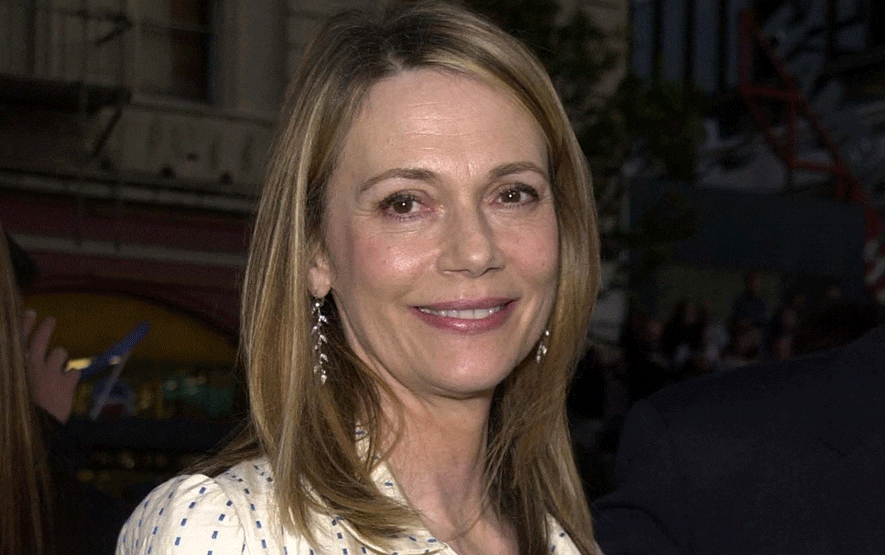







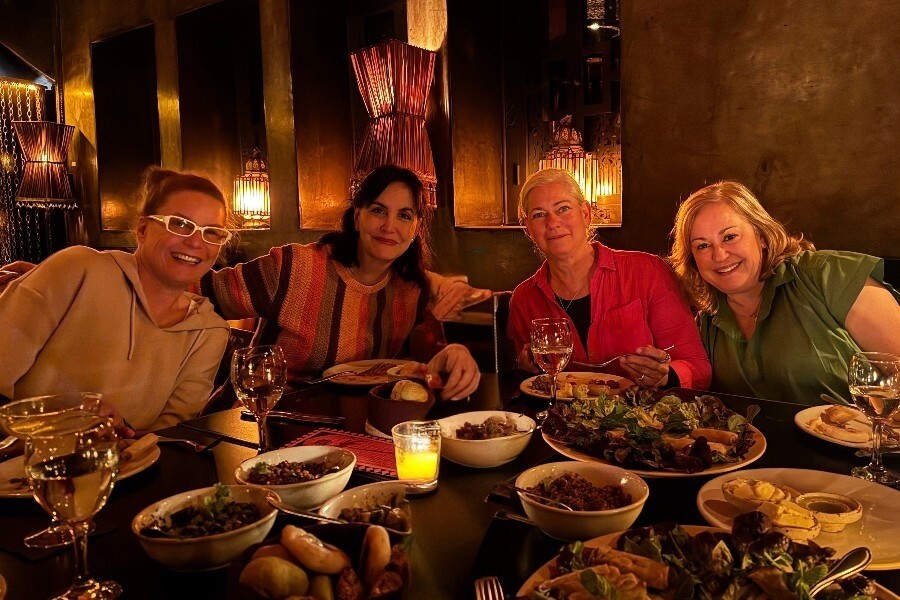
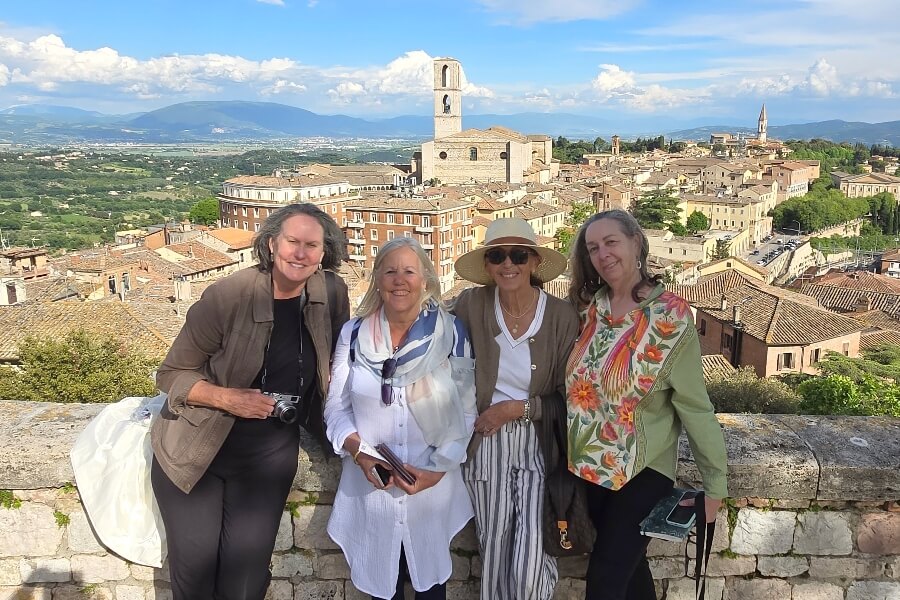


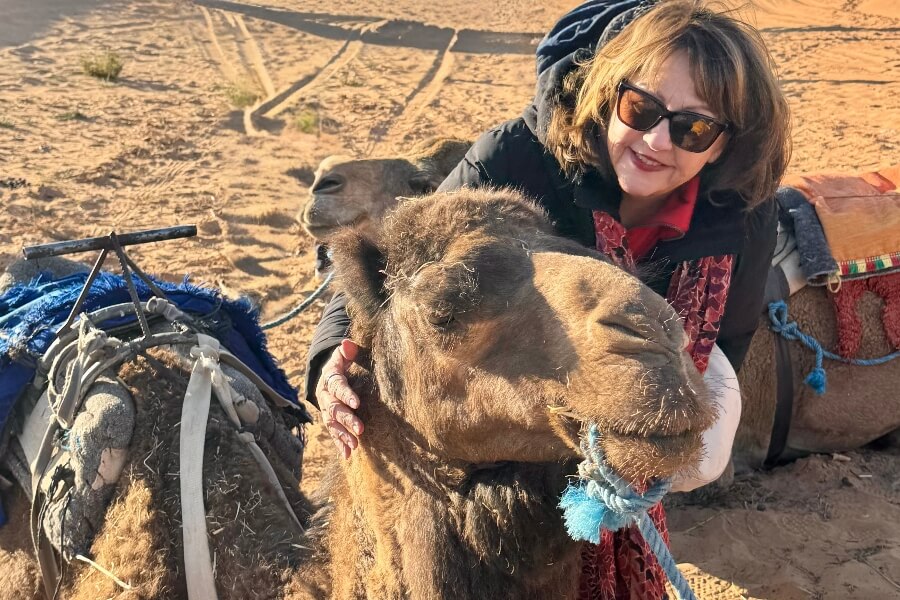
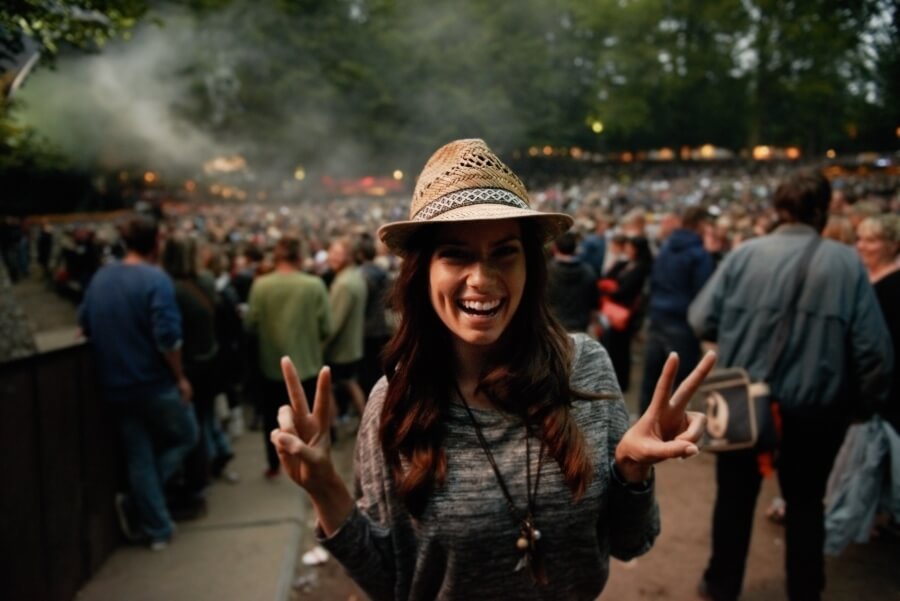
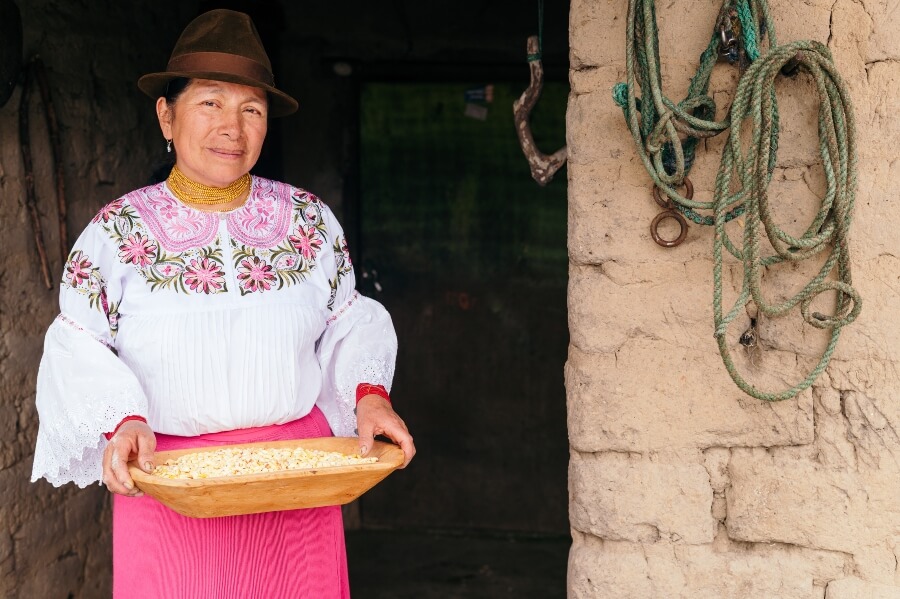
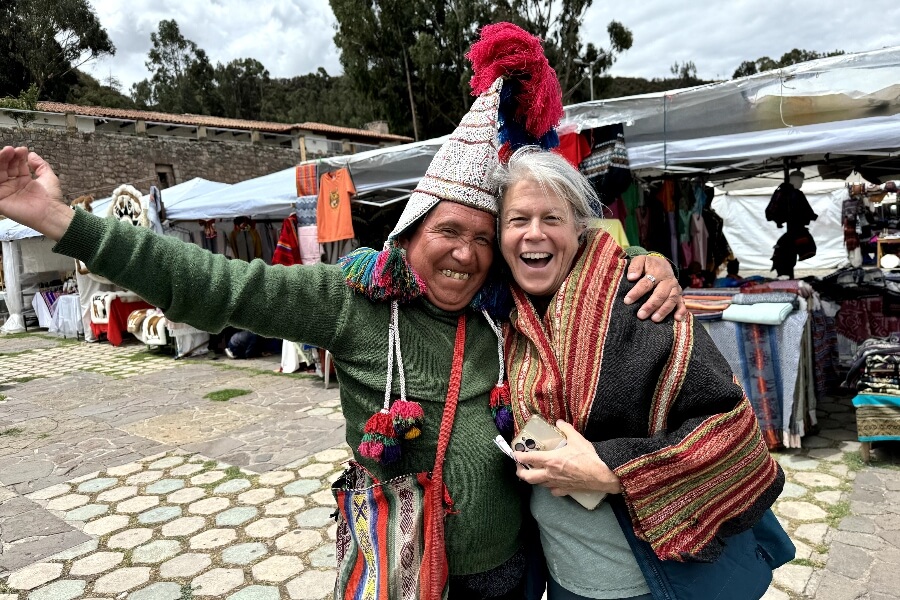

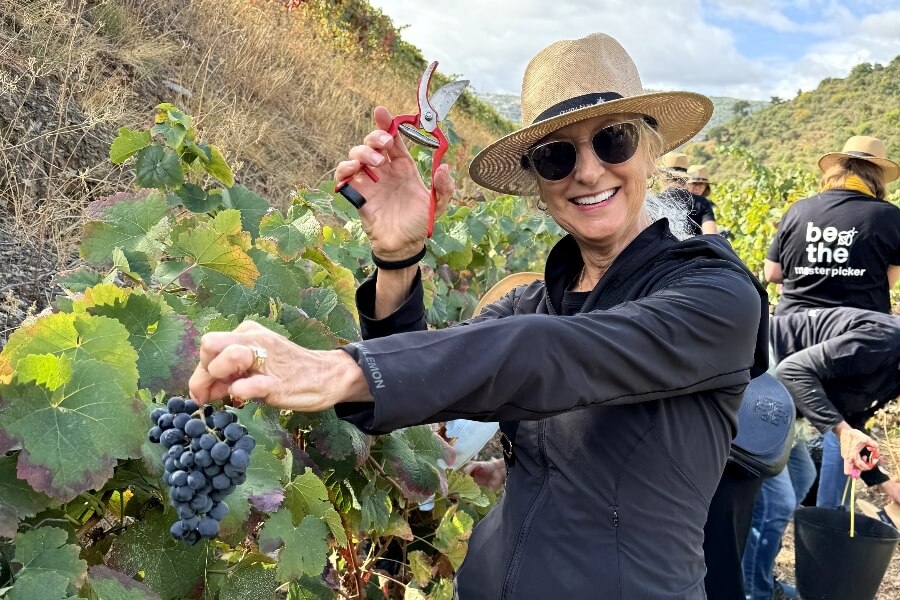

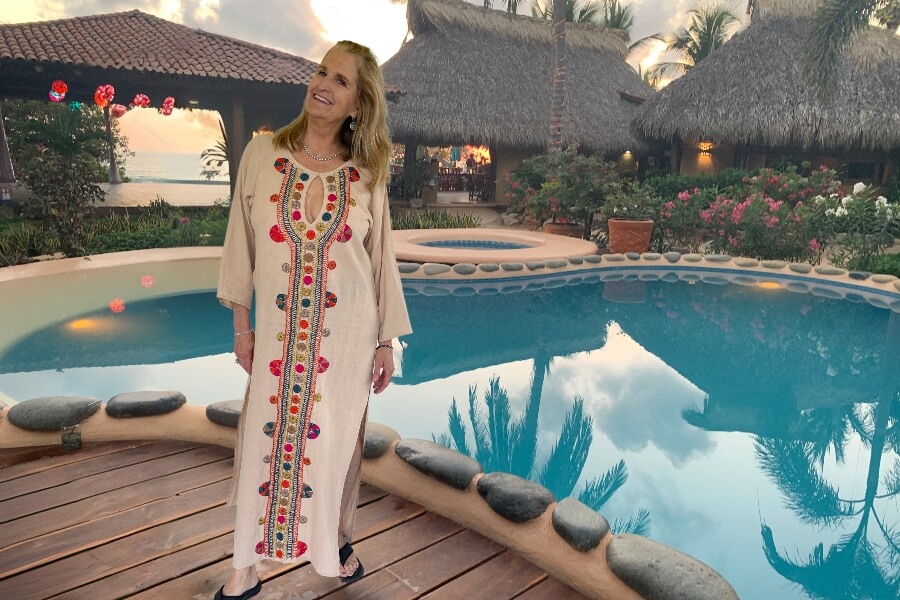


1 Comment